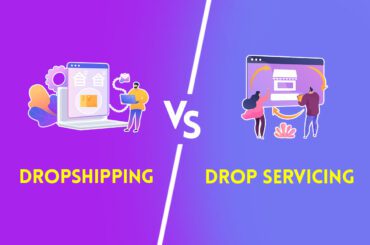
What Is Copywriting?
It’s important to take a broad picture of the subject before diving into the specific details: What is copywriting? And what is a copywriter? How to Copywrite, exactly?
Writing “copy,” which is simply described as words intended to sell, persuade, or influence, is what copywriting is all about. Copywriting might be used to describe every time a writer produces material with the intention of promoting a good or service.
The phrase can also refer to circumstances where a writer’s intention is to influence the reader to take a particular action. However, there is no “selling” involved. Copywriting includes, for instance, writing with the intention of persuading readers to subscribe to a newsletter or make a political contribution.
Copywriting examples include product descriptions, magazine ads, email marketing, landing pages for small businesses, websites, and even cereal boxes. Copywriting in marketing is the main element of copywriting. The average copywriting salary is $51,691 per year.
Standard blog articles, educational and “how-to” manuals, and fiction books, on the other hand, are examples of projects that are not copywriting.
There is sometimes confusion between the phrases “copywriting” and “copyrighting.” Copyrighting, as opposed to copywriting, is the legal process of registering a copyright or trademark. If you say you’re a copywriter, someone could think you’re in the legal industry!
What Does A Copywriter Do?

The primary goal of copywriters is to provide interesting material that can be used in a variety of media. Copywriting is a type of persuasive writing that aims to inform, captivate, and persuade readers to make purchases of products or services either now or in the future.
A copywriter will create ideas to capture the interest of the target audience using the advertising brief or strategy provided by the client. As a copywriter, you must pay special attention to every little detail and word choice. Every element and term used while producing copy has a specific purpose.
Copywriters are required to provide material that is error-free or nearly error-free in order to support marketing, streamline product branding, and establish a strong brand identity. Copywriters often handle many tasks at once. Thus they need to be adept at multitasking. Additional copywriting responsibilities might involve creating articles for:
- Direct mail pieces and emails
- ad campaigns and product catalogs
- Press reports
- Billboards
- promotional flyers
- Radio commercials
- advertisements on TV and on social media
How To Copywrite/How To Get Started?
1. Assess Your Specialties And Skills

It’s crucial to take an honest assessment of your own skills and knowledge before applying for copywriting jobs or freelancing work. You might find it useful to ask yourself the following questions:
- Do you write well?
- Do you have any instances to back this up?
- Have you ever worked in sales?
- Are you familiar with consumer psychology?
- Have you ever run a business or be an entrepreneur?
- Do you still require education before claiming to be an expert copywriter?
- Do you have any knowledge of SEO (search engine optimization)?
- Do you specialize in any particular subjects?
- Do you understand the distinction between copywriting and content writing?
- Do you know the difference between reading good copy and reading poor or mediocre copy?
It takes time to master the art of copywriting. You may be more ready for what’s ahead by starting by evaluating your existing skill levels.
2. Cover The Basics

It takes more than just following simple instructions or properly expressing information to be a good copywriter. Copywriting requires a thorough awareness of both consumer wants and psychological principles. It needs the ability to rapidly and successfully grab the audience’s attention while putting text, images, and call-to-action elements in a pleasing order.
3. Make A Copywriting Website For Your Portfolio

Even if they don’t yet have a sizable portfolio to show, every independent copywriter should set up a website for their online portfolio. Why?
Considering building your own website is the ideal way to improve your copywriting skills while also plainly exhibiting your content to the public.
If you can convince a potential customer to visit your website and employ you as a result of your content, it is undeniable proof that you are capable of producing effective copy.
Are you expecting your first portfolio to be error-free? Definitely not. As you continue to develop your talents, you’ll probably update them several times during the next months and years. However, do you really believe a customer will choose you to work on their website or project if you haven’t even taken the effort to build your own website?
Fortunately, it’s a lot easier to create a website now than it was in the past. Setting up a small WordPress-based website is quite easy.
Install WordPress nex, after which you may go through the many pre-made designs and themes. Do not worry about utilizing a template because the purpose of this task is to demonstrate your copywriting abilities, not your web development capabilities.
4. Develop Your Sales, Psychology, And Persuasive Writing Skills

It’s time to study more and conduct research at this point. Before you can reasonably finish any type of copywriting job, you need to grasp the fundamentals of persuasive writing, copywriting, and consumer psychology.
Although you don’t need a Ph.D. in any of these fields, you do want to know enough to be able to have a meaningful discussion about any of the subjects. Although the internet is a terrific place to start, don’t be afraid to pick up one or two books on the subjects that interest you most.
Writing content is NOT the same as copywriting.
Copywriting is not content writing. I’ll say it again. Really, all you need are some fundamental writing skills and a working understanding of the internet to produce passable content for blogs or websites. However, in order to write an effective copy, you must comprehend both the psychology of language and the mental states of the readers of your copy.
After mastering the fundamentals, you should get familiar with the fundamentals of copywriting, such as:
- How to craft an eye-catching headline
- Writing an engaging value proposition
- A guide to creating landing pages that work
- How to design a sales email that is read and opened
- How to create ads that are effective
- writing screenplays for movies, radio commercials, etc. (if you plan to work in these areas)
There is A LOT to learn about here. Realistically, you should master the fundamentals for at least 10 to 20 hours before beginning a project. You should be aware, nevertheless, that you need to have some practical experience if you want to develop as a professional copywriter. This brings us to the following move…
5. Discover Your First (Unpaid) Job

You must practice copywriting if you want to master it. Due to the importance of this market to a company’s success, you will probably struggle to attract paying customers if you lack experience. So it would make sense in this situation to start with a few calculated unpaid freelance copywriting jobs.
Think about any company owners in your family or circle of friends first. Check out their websites or marketing materials. Can they be improved? If so, go up to them and inquire if they would want free assistance. In return, I request two things from them: detailed feedback and authorization to utilize the piece as a website sample.
It’s a good idea to get input from an experienced copywriter after you’ve finished one or two projects. Ideally, you want thorough input from a copywriter with genuine expertise as well as from the business owner. Use this feedback to enhance your writing by making changes.
6. Develop Your Skills
It’s important to continuously learn and hone the art of copywriting.
However, initially, you’ll need to be patient. Once you gain knowledge and expertise, you may easily start charging more and more.
To master copywriting techniques and improve your abilities, you may keep practicing, study books and blogs on the subject, and carefully go through other writers’ work.
On that final point, it’s important to remember not to simply search for words and phrases to use in your own writing while reading the work of other authors; instead, consider the psychology and logic behind the writing to comprehend why the writer is choosing certain terms.
Related: How to Become a Freelance Writer in 7 Steps [2022]
Conclusion
So there you have it—6 simple steps to becoming a copywriting freelance expert! This tutorial lays the groundwork for you to create a successful freelance copywriting business, but you will undoubtedly need to put in the effort to see that dream through. You may get increasingly higher-level employment and earn more money as you polish your skills, build your portfolio, and develop confidence.
That is, in fact, the entire procedure. Absolutely, it takes time. Yes, some of the elements are frightful. Yes, there is still more for you to learn; I’ve simply given you the broad strokes. But you’re already on your way. You now own a road plan that will direct you through each step you must take. You’ll arrive there eventually. It will all be worthwhile once you start earning big money.












